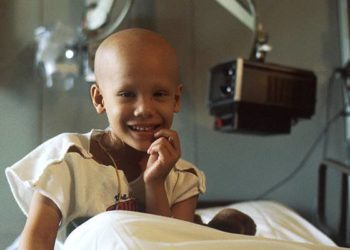Lower doses of radiation for pediatric cancers associated with fewer subsequent cancers
1. Over the past 40 years there has been a reduction in the average radiation doses given to children with certain cancers. Rates of subsequent cancers in these patients have likewise diminished.
Evidence Rating Level: 2 (Good)
Study Rundown: While radiation therapy (RT) is the cornerstone of treatment for a number of pediatric cancers, its use is associated with the development of cancers later in life. These neoplasms are distinct from recurrence and are considered a long-term adverse effect of RT. Since the 1970s the doses of radiation given to children with cancer have fallen due to technological and clinical improvements. This longitudinal cohort study used data from the Childhood Cancer Survivor Study (CCSS) to quantify how rates of subsequent cancers have changed over this time. The results showed that smaller proportions of children with cancer received RT over time, and that the mean dose of radiation likewise declined. The fifteen year cumulative risk of a subsequent malignancy declined from 2.9% in the 1970s to 1.5% in the 1990s. Radiation therapy dose changes were the only component of treatment found to be significantly associated with the reduced risk of subsequent neoplasm rates over time.
While this study’s results are heartening, they are limited in a few ways. There may be a degree of selection bias as 33% of survivors in the CCSS were not included in the analysis, and certain cancer types were excluded, like retinoblastoma. Additionally, the study did not analyze patients who lived for less than 5 years after RT, and while subsequent cancers are unlikely in this time period, it may have skewed the results. Future studies may explore therapies for subsequent neoplasms to better assess the role of treatment in long term survivors.
Click to read the study, published today in JAMA
Relevant Reading: Collaborative Research in Childhood Cancer Survivorship: The Current Landscape
In-Depth [retrospective cohort]: The CCSS database consists of longitudinal follow-up of survivors of childhood cancer diagnosed at a participating institution (total 27) in the United States or Canada between Jan 1, 1970 and Dec 31, 1999. Participants were younger than 21 years of age at initial diagnosis. Subsequent neoplasms occurring 5 years or more after initial diagnosis were grouped into three categories: subsequent malignant neoplasms, benign meningiomas, and non-melanoma skin cancers. Cohort follow-up began at 5 years from diagnosis.
The patient cohort included 23 603 survivors; 46% female, 7.7 years mean age at primary diagnosis, mean follow-up 15.7 years for survivors diagnosed in 1990s and 27.6 years for those diagnosed in the 1970s. Both radiation therapy usage and dose decreased with each decade. At 15 years from initial diagnosis, the cumulative incidence of subsequent neoplasms decreased with each decade from 1970s (2.9%; 95%CI 2.5% – 3.3%), to 1980s (2.4%, 95%CI 2.1% – 2.7%), and to 1990s (1.5%, 95%CI 1.3% – 1.8%) (p < 0.001 for significant reductions across each decade). Risk factors for subsequent neoplasm development included female gender and treatment with high doses of alkylating agents and platinum agents. Therapeutic radiation at all dose increments was associated with an increased risk of subsequent neoplasm in all the categories studied.
Image: PD
©2017 2 Minute Medicine, Inc. All rights reserved. No works may be reproduced without expressed written consent from 2 Minute Medicine, Inc. Inquire about licensing here. No article should be construed as medical advice and is not intended as such by the authors or by 2 Minute Medicine, Inc.








